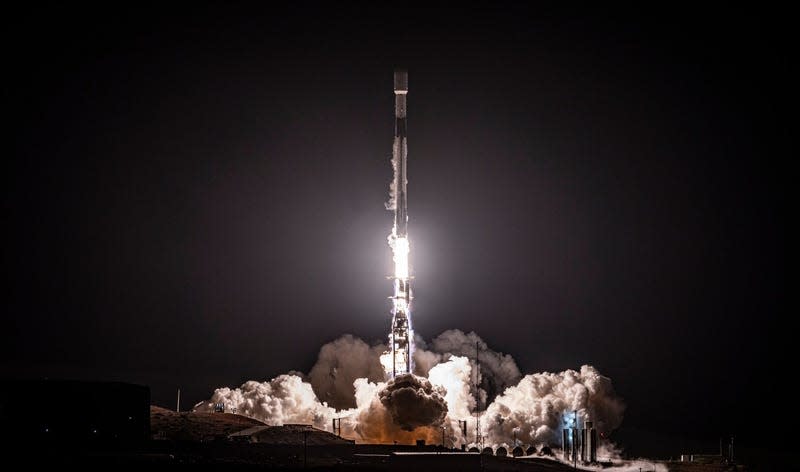Boeing Bowing Out of Starlink Competition Prompts Smug Response from Elon

The launch of Boeing’s Varuna prototype internet satellite technology, September 5, 2022.
In the latest twist in the satellite industry, Boeing has decided to forfeit its license for a low Earth orbit (LEO) satellite constellation, a project that would’ve competed with SpaceX’s Starlink network.
Boeing’s plans to build a broadband internet constellation are officially over. At least for now. On Monday, Boeing formally surrendered its license to build the system and paid the Federal Communications Commission (FCC) a $2.2 million forfeiture penalty, as reported in Aerospace Daily, a subsidiary of Aviation Week. The FCC officially revoked Boeing’s license on October 12, a permit that had originally been granted to the company in November 2021.
Read more
We know why Simone Biles doesn’t get the same attention as Taylor Swift at NFL games
Vegas Residents Tear Down Film Placed Over Pedestrian Bridges To Blocks View Of F1 Race [Update]
Sexy Anime RPG Puts Players In ‘Gem Debt’ To Pay Off Dev’s Mistake
Competing with SpaceX is tough
— Elon Musk (@elonmusk) November 1, 2023
Boeing had initially shown great interest in carving out its own footprint in the satellite constellation domain. Ryan Reid, president of Boeing Commercial Satellite Systems, discussed the company’s intentions during a 2021 interview with Aerospace Daily, expressing Boeing’s desire to establish partnerships for an NGSO (Non-Geostationary Satellite Orbit) constellation. Reid clarified that Boeing’s approach would differ from SpaceX’s Starlink, focusing more on business-to-business arrangements, similar to the model adopted by OneWeb, rather than Starlink’s direct-to-consumer model. He added that, while Boeing was not directly competing with Starlink, its customers would be.
Boeing launched its Varuna prototype satellite in September 2022 aboard a SpaceX Falcon 9 rideshare mission, marking a key first step in its satellite constellation development. This mission was meant to test the technologies intended for the full constellation, ensuring their functionality in space. A Sherpa-LTC 2 transfer vehicle hosts Boeing’s Varuna-TDM (Varuna Technology Demonstration Mission) payload, and it remains operational in orbit.
“Our V-Band test mission provided valuable data and learning. For now, we are not immediately pursuing a V-Band constellation,” said Parker. “We will continue to invest in opportunities that push what’s possible for connectivity in space.”
The FCC had originally granted Boeing a license to operate a 147-satellite V-band constellation, with Boeing later requesting an expansion to more than 5,000 satellites. The FCC’s stringent requirements mandated that Boeing deploy half of its constellation by November 2027 (i.e. six years after issuing the license). According to Aerospace Daily, Boeing’s request to relax these deployment rules was denied by the FCC, which aims to prevent spectrum squatting (a practice in which companies hold a license for spectrum usage without actively utilizing it, potentially hindering other companies from accessing valuable communication frequencies). It’s not clear if the 50% rule contributed to Boeing’s decision to drop the project. Boeing did not respond to Gizmodo’s request for clarification on this matter.
Boeing has stepped back from its megaconstellation ambitions, while SpaceX continues to solidify its position as the primary player. But this doesn’t close the door for other potential rivals to enter into the satellite internet fray. Amazon’s Project Kuiper is actively making strides, highlighted by the recent successful launch of two prototype satellites. Other noteworthy contenders vying for a piece of the satellite internet market include the aforementioned OneWeb, Telesat, and Astra.
For more spaceflight in your life, follow us on X (formerly Twitter) and bookmark Gizmodo’s dedicated Spaceflight page.
More from Gizmodo
Sign up for Gizmodo's Newsletter. For the latest news, Facebook, Twitter and Instagram.

